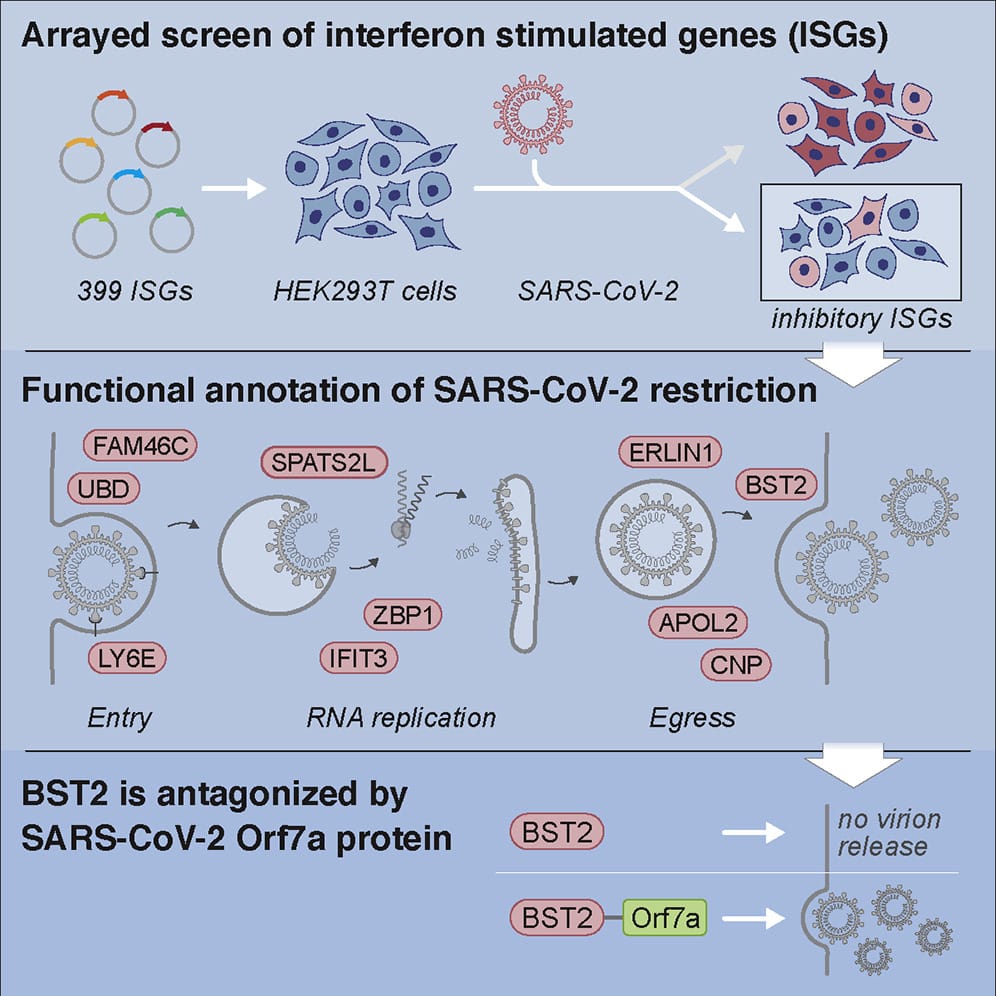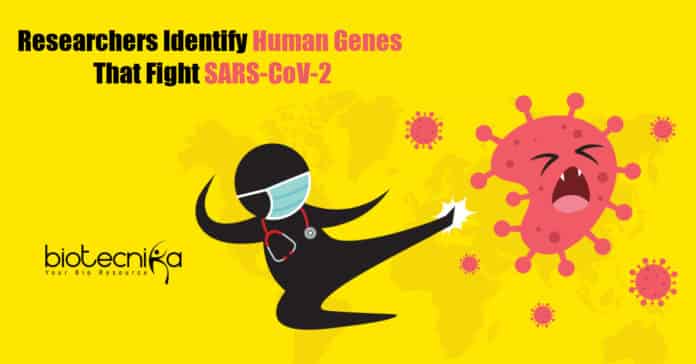A Set Of Human Genes That Fight COVID-19
A set of human genes that fight COVID-19 has been identified by researchers from Sanford Burnham Prebys. Discerning which genes help control the viral infection can substantially help scientists understand factors that influence disease severity and recommend feasible therapeutic alternatives. The genes concerned belong to interferons, the body’s frontline virus warriors. The research was released in Molecular Cell.
Prof. Sumit K. Chanda, Ph.D., Director of the Immunity and Pathogenesis Program, Sanford Burnham Prebys, and the lead author of the study stated that they wished to get a far better knowledge of the virus cellular response to COVID-19, including what makes a strong or weak response to the virus. We have obtained novel understandings into how SARS-CoV-2 uses the human cells it attacks, yet they are still looking for its Achille’s heel to make sure that they can develop the best antivirals.
Shortly after the onset of this ongoing pandemic, clinicians identified a weak interferon response to SARS-CoV-2 resulted in a few of the more critical cases of COVID-19. This understanding led Prof. Sumit K. Chanda and his associates to explore the human genes triggered by interferons, referred to as interferon-stimulated genes (ISGs
), which function to restrict SARS-CoV-2 infection.On the basis of understanding amassed from SARS-CoV-1, the virus that triggered a fatal outbreak of disease from 2002-2004, and understanding that it resembled SARS-CoV-2, the researchers were capable of developing tests to identify the ISGs that control viral duplication in SARS-CoV-2.
Prof. Sumit K. Chanda stated that they have identified that 65 ISGs controlled COVID-19, including some that hindered the virus’ capacity to enter the cells, some that repressed synthesis of the RNA that is the virus’s lifeline, and a group of genes that hindered assembly of the virus. Another interesting thing is that some of the ISGs displayed control across unrelated viruses, like seasonal flu, West Nile, and HIV.

Laura Martin-Sancho, Ph.D., a senior postdoctoral associate in the Chanda lab and first author of the study, stated that they determined 8 ISGs that hindered both SARS-CoV-1 and CoV-2 multiplication in the subcellular compartment held for protein packaging, recommending this vulnerable site could be used to eliminate the viral infection. This is essential info; however, more knowledge has to be gathered concerning the biology of the virus and explore if genetic variability within these ISGs associates with SARS-CoV-2 severity.
As the following action, the scientists will explore the biology of SARS-CoV-2 variants that remain to evolve and endanger vaccine effectiveness. Martin-Sancho stated that they have already begun collecting variants for lab studies.
Read also:






























